Autism and Developmental Delays
Explore the world of autism and developmental delays. Gain insights, support, and resources for navigating this spectrum.

Understanding Autism and Developmental Delays
When it comes to understanding neurodevelopmental conditions, it's important to have a clear understanding of autism and developmental delays. These two terms are often discussed in relation to children's development and can have significant impacts on individuals and their families.
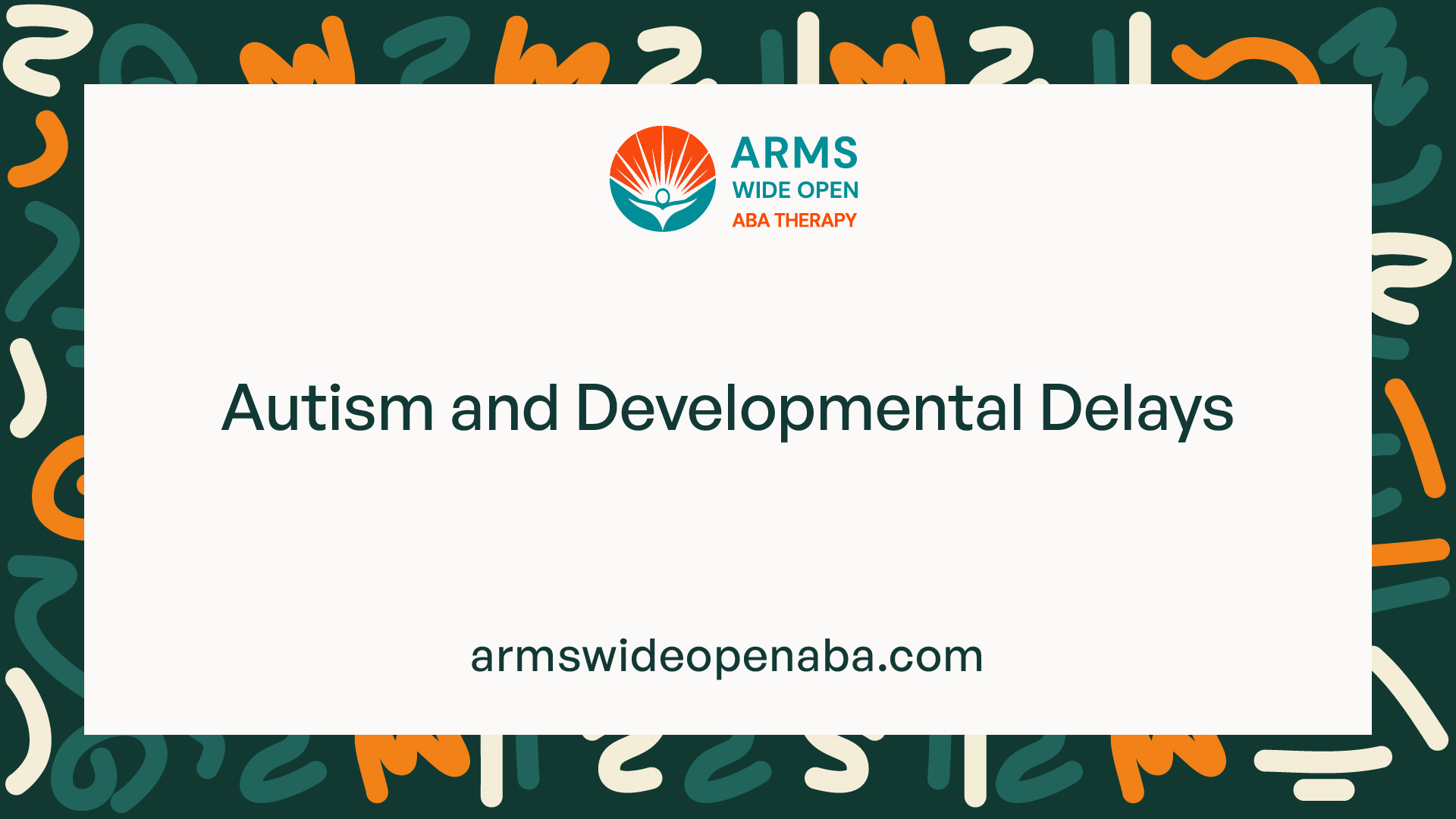
What is Autism?
Autism, also known as Autism Spectrum Disorder (ASD), is a complex neurodevelopmental condition that affects communication, social interaction, and behavior. It is typically diagnosed in early childhood, although signs may be present even in infancy. Autism is characterized by a range of symptoms and challenges that can vary widely from person to person.
Autism Spectrum Disorder (ASD)
Impaired social interaction and communication
Restricted interests and repetitive behaviors
Sensory sensitivities
Difficulty with changes in routines or transitions
Varying levels of intellectual and language abilities
What are Developmental Delays?
Developmental delays refer to a broad range of conditions in which a child's development lags behind what is considered typical for their age. These delays can affect various areas of development, including cognitive, motor, language, and social skills. Developmental delays can result from a variety of factors, such as genetic conditions, prematurity, or environmental factors.
Developmental Delays
Delayed milestones in areas such as crawling, walking, or talking
Difficulty with fine or gross motor skills
Challenges with problem-solving or learning
Delays in social or emotional development
Varied levels of delay depending on the individual
Understanding autism and developmental delays is crucial for early identification, intervention, and support. By recognizing the signs and symptoms, seeking appropriate diagnosis and evaluation, and implementing effective treatment and interventions, individuals with autism or developmental delays can receive the support they need to thrive. Additionally, accessing support services and resources can provide valuable assistance to individuals and their families, making navigating daily life a more manageable and inclusive experience.
Signs and Symptoms
Understanding the signs and symptoms of autism and developmental delays is essential for early identification and intervention. By recognizing these signs, parents, caregivers, and healthcare professionals can take appropriate steps to support individuals in their development. This section will explore the signs of autism and the importance of identifying developmental milestones.
Recognizing Signs of Autism
Autism is a neurodevelopmental disorder characterized by challenges in social interaction, communication, and restricted or repetitive behaviors. It is important to note that each individual with autism may exhibit a unique combination of symptoms and the severity can vary.
Signs of Autism
Difficulty with social interactions and communication, such as maintaining eye contact, initiating or responding to conversation
Repetitive and stereotypical behaviors, like hand flapping, rocking, or lining up objects
Sensory sensitivities or difficulties, such as being overly sensitive or under-responsive to certain sounds, textures, or lights
Difficulty understanding and expressing emotions
Unusual or intense interests
Delayed speech or language skills
Challenges with transitions or changes in routine
It is crucial to remember that these signs may appear in early childhood, but a formal diagnosis of autism should be made by a qualified healthcare professional or specialist. Early intervention and support can significantly improve outcomes for individuals with autism.
Identifying Developmental Milestones
Developmental milestones are a set of skills or abilities that children typically acquire by a certain age. They serve as guidelines for tracking a child's growth and development. It is important to note that every child develops at their own pace, and there is a range of what is considered typical.
Developmental Milestones
Motor Skills: Rolling over, sitting, crawling, walking
Language Skills: Babbling, saying first words, combining words, following simple instructions
Cognitive Skills: Problem-solving, understanding cause and effect, pretend play, object permanence
Social and Emotional Skills: Smiling, making eye contact, imitating others, showing empathy
Self-Help Skills: Feeding, dressing, using the toilet independently
If a child consistently fails to achieve certain milestones within the expected timeframe or if there is a significant regression in their skills, it may indicate a developmental delay. Early intervention and evaluation by healthcare professionals or specialists are crucial in identifying and addressing developmental delays.
By recognizing the signs of autism and monitoring developmental milestones, parents, caregivers, and healthcare professionals can play a vital role in supporting individuals with autism and developmental delays. Early identification and intervention pave the way for effective therapies and interventions, enhancing the potential for positive outcomes and improved quality of life.
Diagnosis and Evaluation
When it comes to autism and developmental delays, timely diagnosis and evaluation are crucial for accessing appropriate support and interventions. In this section, we will explore the diagnostic process for autism and the evaluation methods used for developmental delays.
Diagnostic Process for Autism
The diagnostic process for autism involves a comprehensive assessment conducted by healthcare professionals specializing in neurodevelopmental disorders. It typically includes the following steps:
- Developmental Screening: Healthcare providers may use standardized screening tools to evaluate a child's developmental milestones and identify any areas of concern. These screenings are often performed during regular well-child visits.
- Comprehensive Evaluation: If a child displays signs of autism during the developmental screening, further evaluation is recommended. This evaluation is conducted by a multidisciplinary team, which may include psychologists, pediatricians, speech-language pathologists, and occupational therapists.
- Diagnostic Criteria: The evaluation process involves assessing the child's behavior, social interactions, communication skills, and sensory sensitivities. The healthcare professionals refer to the Diagnostic and Statistical Manual of Mental Disorders (DSM-5) criteria to determine if the child meets the criteria for an autism spectrum disorder (ASD) diagnosis.
- Observation and Interviews: The healthcare professionals may observe the child in various settings, such as at home and in educational settings, to gather information about their behavior and social interactions. They also conduct interviews with the child's parents or caregivers to gain insight into the child's developmental history and behavior.
It's important to note that the diagnostic process for autism can be complex and may require multiple visits and assessments. The goal is to provide an accurate diagnosis that guides intervention and support planning.
Evaluation for Developmental Delays
In the case of developmental delays, the evaluation process aims to identify areas of developmental concerns and determine the appropriate interventions. The evaluation methods may vary depending on the specific developmental areas in question. Some common evaluation techniques include:
- Developmental Assessments: Developmental assessments involve evaluating a child's skills and abilities in various domains, such as motor skills, language and communication, cognitive abilities, and social-emotional development. These assessments are often conducted using standardized tools and may involve direct observation, parent or caregiver interviews, and play-based assessments.
- Medical Evaluation: In some cases, a medical evaluation may be recommended to rule out any underlying medical conditions that could contribute to the developmental delay. This may involve physical examinations, genetic testing, or referrals to specialists such as neurologists or geneticists.
- Collaboration with Professionals: Evaluations for developmental delays often involve collaboration among professionals, such as pediatricians, psychologists, speech-language pathologists, occupational therapists, and educators. This interdisciplinary approach allows for a comprehensive evaluation and the development of an individualized intervention plan.
The evaluation process for developmental delays aims to identify the specific areas of delay and provide a clear understanding of the child's strengths and challenges. This information is essential for developing targeted interventions and support strategies to help the child reach their full potential.
By undergoing a thorough diagnostic process for autism or an evaluation for developmental delays, individuals and their families can gain valuable insights into their unique needs. These assessments serve as a foundation for accessing appropriate support, interventions, and resources to promote optimal development and well-being.
Treatment and Interventions
When it comes to addressing autism and developmental delays, various treatment options and interventions are available to support individuals in their development and improve their quality of life. This section will explore some of the common therapies for autism and interventions for developmental delays.
Therapies for Autism
Therapies for autism typically focus on enhancing communication skills, social interactions, and behavior management. These therapies are tailored to meet the unique needs of individuals on the autism spectrum. Here are a few commonly used therapies:
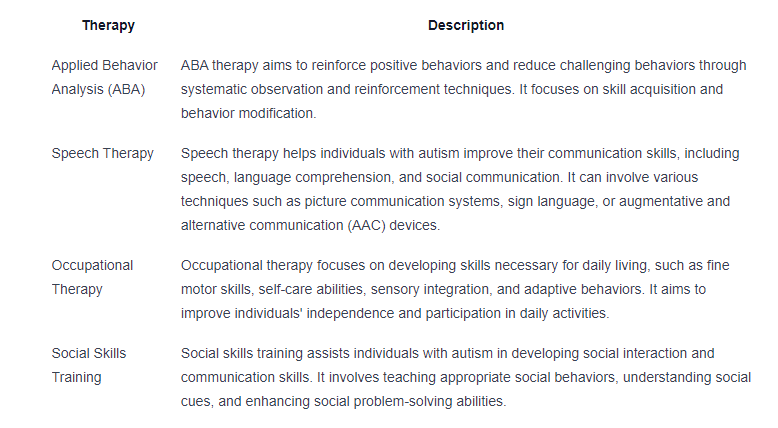
Interventions for Developmental Delays
Interventions for developmental delays aim to address specific areas of delay in children's overall development. These interventions are designed to help children catch up in areas such as language, cognitive skills, motor skills, and social-emotional development. Here are some common interventions used for developmental delays:
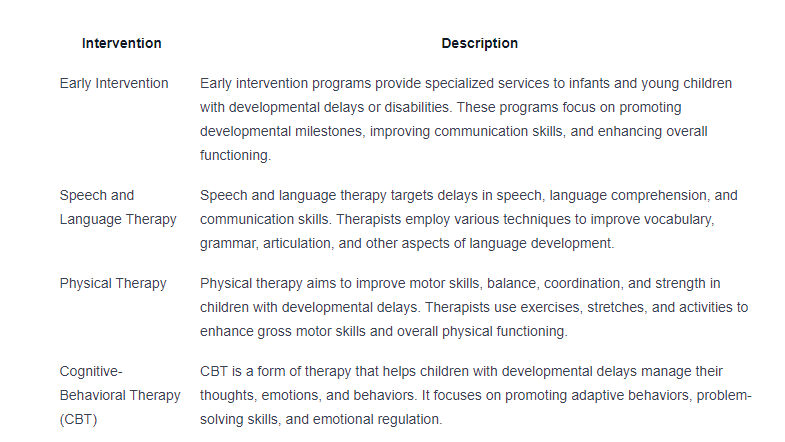
It's important to note that the specific therapies or interventions recommended for individuals with autism or developmental delays may vary depending on their unique needs and goals. A comprehensive evaluation by professionals experienced in working with these populations is crucial in determining the most suitable treatment and intervention strategies. Additionally, early intervention plays a significant role in maximizing the potential for positive outcomes and long-term success.
Support and Resources
When it comes to autism and developmental delays, it's essential to have access to support services and resources that can provide assistance and guidance. In this section, we will explore the support services available for individuals with autism and the resources that can be beneficial for those dealing with developmental delays.
Support Services for Individuals with Autism
Support services play a crucial role in helping individuals with autism navigate their daily lives and reach their full potential. These services encompass a wide range of areas, including education, therapy, and community support. Some of the common support services for individuals with autism include:
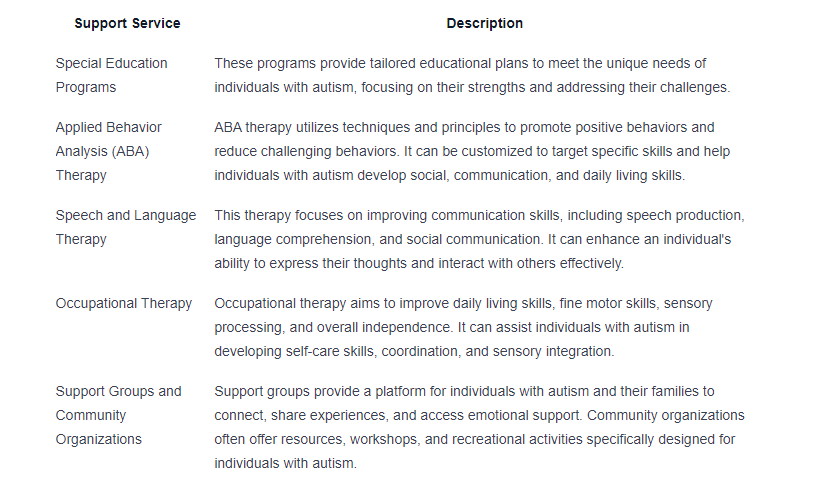
Resources for Developmental Delay Support
For individuals experiencing developmental delays, accessing appropriate resources can be valuable in promoting growth and development. These resources can include information, tools, and programs that aid in addressing specific developmental areas. Here are some examples of resources that can be helpful for developmental delay support:
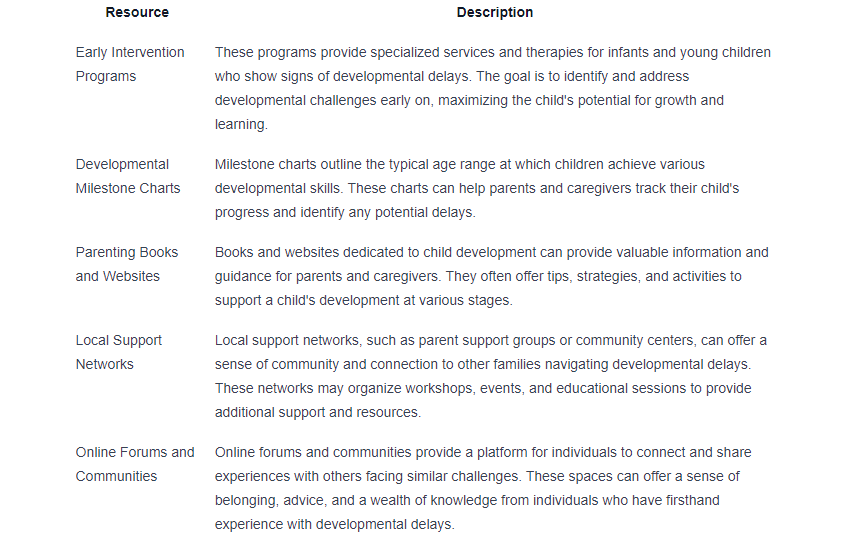
By utilizing the available support services and resources, individuals with autism and those experiencing developmental delays can access the necessary tools and assistance to thrive and reach their full potential.
Navigating Daily Life
When it comes to autism and developmental delays, navigating daily life can present unique challenges for parents and caregivers. However, with the right strategies and a focus on inclusion and advocacy, it is possible to create a supportive environment for individuals with autism and developmental delays.
Strategies for Parents and Caregivers
As a parent or caregiver, there are several strategies that can help you effectively support individuals with autism and developmental delays in their daily lives. These strategies include:
- Establishing a Routine: Creating a structured daily routine can provide predictability and stability for individuals with autism and developmental delays. Consistency can help reduce anxiety and improve overall well-being.
- Clear Communication: Effective communication is key in supporting individuals with autism and developmental delays. Use clear and concise language, visual aids, and assistive communication tools to facilitate understanding and expression.
- Sensory Considerations: Sensory sensitivities are common in individuals with autism and developmental delays. Pay attention to their sensory needs and provide a sensory-friendly environment. This may involve minimizing noise, adjusting lighting, or providing sensory tools like fidget toys.
- Positive Reinforcement: Utilize positive reinforcement techniques to encourage desired behaviors and achievements. Praise and rewards can motivate individuals with autism and developmental delays and promote their self-esteem.
- Self-Care and Support: Taking care of yourself is essential when caring for someone with autism or developmental delays. Seek support from other caregivers, join support groups, and prioritize self-care activities to avoid burnout and maintain your own well-being.
Inclusion and Advocacy Efforts
Inclusion and advocacy play a crucial role in ensuring that individuals with autism and developmental delays have equal opportunities and access to resources. Here are some important efforts to consider:
- Education and Awareness: Advocate for inclusive education and raise awareness about autism and developmental delays within your community. Encourage schools and educational institutions to implement inclusive policies and provide necessary support services.
- Community Engagement: Engage with community organizations and promote inclusive programs and activities for individuals with autism and developmental delays. This may include sports clubs, art classes, or social groups that cater to their specific needs.
- Accessible Environments: Advocate for accessible environments that accommodate the unique requirements of individuals with autism and developmental delays. This includes physical accessibility, sensory-friendly spaces, and inclusive recreational areas.
- Policy and Legislation: Stay informed about policies and legislation related to autism and developmental delays. Advocate for policies that promote inclusion, support services, and equal opportunities for individuals with autism and developmental delays.
By implementing strategies that support daily life and actively engaging in inclusion and advocacy efforts, parents and caregivers can make a positive impact on the lives of individuals with autism and developmental delays. Together, we can create a more inclusive and supportive society for everyone.
Sources
https://www.verywellhealth.com/developmental-milestones-in-children-with-autism-4128725
https://www.eccm.org/blog/difference-between-developmental-delays-and-autism
https://www.medicalnewstoday.com/articles/developmental-delay-vs-autism
Similar articles
We’re here to help you

Our team is here to assist you in this process. Contact us for any assistance.
it’s easy to apply
We Accept Most Insurances
Our in-network insurance partnerships make ABA therapy more accessible to families throughout our service areas.







Our Insurance Process
We'll request your insurance details to help us verify your plan's coverage for ABA therapy. Once we've received this information, we'll walk you through your benefits, including copayments, deductibles and out-of-pocket maximums, so you know what to expect in advance.
Our team will then handle the preauthorization and all the necessary paperwork.
.svg)





















.jpeg)


































.jpeg)




.jpeg)







.jpeg)











.jpeg)
















